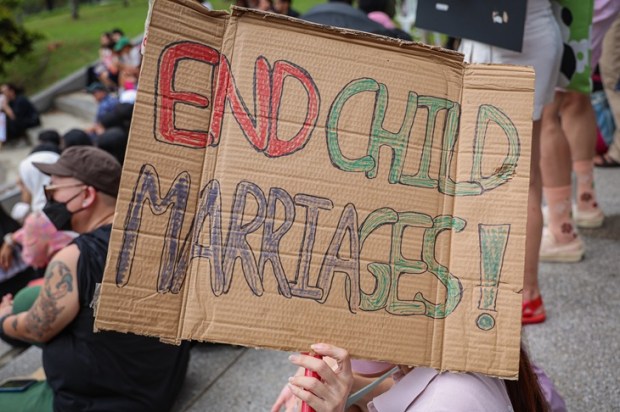The implications of a ‘No’ vote for Australia’s standing on the world stage has unremittingly stalked the referendum debate.
This week, Peter Dutton criticised the Prime Minister for not altering the amendment wording, despite the Prime Minister ‘predicting months ago … that it would create an international reputational risk for us’.
Former Minister for Foreign Affairs Julie Bishop recently made the claim ‘that Australia’s international reputation can be affected by a ‘No’ vote’ because it ‘would be sending a very negative message about the openness, and the empathy, and the respect and responsibility that the Australian people have for Aboriginal and Torres Strait Islanders’. However, if the accepted consensus in international law is the measure by which Australia is to be judged a pariah, these claims of an international reputational risk do not hold.
In international human rights jurisprudence, there is an important difference between the claim that a State party has an ‘obligation’ to implement an international human right within domestic legislation, and the claim that a domestic proposal is ‘consistent’ with international human rights law. The former is a claim that a State party must take some specific positive action to address a lacuna in its law or to amend laws that are inconsistent with its international obligations. The latter claim admits that a range of means may be taken in order to give effect to the obligations of human rights law. The proposed amendment to the Constitution to enshrine a Voice to Parliament falls into the latter category.
The Statement of Compatibility with Human Rights that accompanies the legislation enabling the conduct of the referendum makes the latter claim: The Voice is ‘consistent’ with human rights law. This claim has the potential to elide the fact that there are other consultation mechanisms available that would also be consistent with human rights law, and which need not be enshrined in the Australian Constitution.
It is a foundational principle of human rights law that Indigenous people have a right to be consulted on matters that affect them. My earliest days in the law were devoted to that principle where I assisted a former ‘head hunter’ in a precedent land rights claim in Borneo, and where I represented Indigenous groups negotiating with the government for the establishment of businesses in the Northern Territory. More recently, the United Nations Human Rights Committee (UNHRC) has stated that effective consultation means that Indigenous people should give their free, prior, and informed consent.
However, international human rights law does not support the proposition that Australia is required under its international obligations to implement a Constitutional mechanism for consultation with Indigenous peoples. The human rights of Indigenous persons can be protected by other means. By way of illustration, the UNHRC has not called upon countries that do not have a constitutionally enshrined consultation mechanism to adopt one in the various country reports in which it has considered the treatment of Indigenous peoples. This reflects the important fact that the right to self-determination in Article 1 of the International Covenant on Civil and Political Rights (ICCPR) does not require State parties to adopt Constitutional mechanisms for consultation with Indigenous peoples.
Where complainants to the UNHRC have asserted a violation of the protections to minorities at Article 27 of the ICCPR, the UNHRC has displayed a consistent willingness to have regard to whether sufficient consultation has been undertaken with Indigenous peoples. In various matters a finding of no violation of Article 27 was issued where consultation had taken place under mechanisms that were not Constitutionally enshrined. The United Nations Declaration on the Rights of Indigenous Peoples also reflects that understanding. Although non-binding, it also does not posit that a State should enshrine consultation mechanisms within its Constitutional frameworks.
In short, non-constitutional systems may also be consistent with, and give effect to, the requirements of human rights law. This understanding was not only curiously absent from the referendum legislation’s Statement of Compatibility with Human Rights, but it was also absent from the subsequent human rights analysis conducted by the Parliamentary Joint Select Committee considering the legislation. Against the backdrop of allegations of misinformation and disinformation now flying thick and fast in the referendum debate, one has to wonder why this position was not clarified.
In The Australian, Australian Human Rights Commissioner Lorraine Finlay has asserted that the referendum proposal ‘inserts race into the Australian Constitution in a way that undermines the foundational human rights principles of equality and non-discrimination’.
The Constitution is the genesis document upon which the Commonwealth legal system is founded. The claim that a dynamic of inequality may be introduced into that structure is a very serious contention that requires due consideration.
Under human rights law, for a form of differential treatment to be non-discriminatory, it must satisfy certain criteria. As the UNHRC has said, ‘Not every differentiation of treatment will constitute discrimination if the criteria for such differentiation are reasonable and objective and if the aim is to achieve a purpose which is legitimate under the Covenant.’
Commissioner Finlay has raised an important question. It may be framed in the following fashion: Is a Constitutionally enshrined consultation mechanism in the form of the Voice ‘reasonable and objective’ with an ‘aim … to achieve a purpose which is legitimate under the Covenant’? That is a question that must be answered in light of Australia’s unique context and history, including with respect to its legal and Constitutional frameworks and its relationship with Indigenous Australians.
However, when considering the various factors that come into play in the determination of that question, we can be sure that Australia’s international human rights obligations (which are a relevant factor in determining what may be reasonable and objective in pursuit of an aim under the ICCPR) do not require the adoption of the Voice in our Commonwealth Constitution. It would seem very strange indeed if we were rightly to be considered international pariahs for not proceeding with a proposal that is not itself required according to the consensus of international human rights law.
Mark Fowler is an Adjunct Associate Professor in the Law School of the University of Notre Dame Australia, and an Adjunct Associate Professor in the School of Law at the University of New England and a Research Scholar at the Centre for Public, International and Comparative Law, University of Queensland.

























